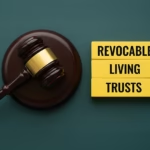
Five Key Times to Revisit Your Will, Trust, and Estate Plan in California
October 23, 2025
Why Every Single Californian Should Consider a Revocable Trust: A Guide by Kushner Legal Corporation
November 23, 2025Incapacity and Estate Planning for LGBTQ Singles in California: Protecting Your Wishes and Your Chosen Family

At Kushner Legal Corporation, we work with many LGBTQ individuals who have built rich and meaningful lives—often anchored by chosen family rather than traditional relatives. Yet under California law, unless you put clear documents in place, the people closest to you may have no legal authority to make medical or financial decisions or to inherit your assets.
Estate planning is not just about wealth—it’s about dignity, control, and ensuring your values are honored when you can’t speak for yourself.
When You Don’t Plan, the Law Decides for You
If you become incapacitated without proper documents, a court could appoint a conservator to make personal and financial decisions. That person may be a blood relative you’ve been estranged from, rather than the trusted friends or partners who actually know you.
Similarly, if you pass away without a will or trust, California’s intestacy laws (Probate Code §§ 6400–6455) automatically determine who inherits your property. For single individuals without a spouse or registered domestic partner, your estate typically passes to parents, siblings, nieces, or nephews—not to friends, partners, or your chosen family.
In short, unless you create a plan, the state’s default rules favor biology, not community.
Empowering Your Chosen Family to Act
Advance Health Care Directive
Under California Probate Code §§ 4600–4806, you can sign an Advance Health Care Directive naming the person you want to make medical decisions if you cannot. You can also specify your preferences for treatment, pain relief, gender-affirming care, and end-of-life decisions.
This document ensures that someone who truly understands your values—not a distant relative—guides your care.
HIPAA Release and Mental Health Instructions
A HIPAA authorization allows doctors and hospitals to share information with your chosen agent and trusted friends. Including mental health instructions in your directive can also ensure continuity of care and emotional support during crisis situations.
Nomination of Conservator
Even if a court process becomes necessary, Probate Code § 1810 allows you to nominate who should be appointed as your conservator—another powerful way to prevent unwanted family interference.
Protecting Your Finances During Incapacity
A Durable Power of Attorney for Finances gives a trusted person the authority to manage your bills, investments, and accounts if you’re unable to act. California’s statutory framework for powers of attorney appears in Probate Code §§ 4000–4545, with the official form at § 4401. Without this document, your friends or partner could face endless roadblocks from banks and institutions, forcing them into court just to keep your life running.
Directing Who Inherits—Not the State
A Will or Revocable Living Trust allows you to name beneficiaries and a trusted person to manage your estate. While a will still requires probate, a living trust can avoid court altogether and ensure privacy for your estate.
Without these tools, the people you care about most could be excluded entirely under Probate Code §§ 6400–6455.
Other planning opportunities include:
-
- Pet Trusts (Probate Code § 15212) for lifetime pet care.
- Careful documentation when leaving gifts to caregivers (Probate Code § 21380) to prevent legal challenges.
- Updated beneficiary designations on accounts and insurance policies.
Respecting Your Identity and End-of-Life Wishes
For LGBTQ individuals, identity is deeply personal—and can be vulnerable in moments of incapacity or death. You can document your preferred name, pronouns, presentation, and memorial wishes to ensure they’re honored.
Under Health & Safety Code § 7100, you may appoint an agent with the legal right to make funeral and burial decisions, preventing conflicts with estranged relatives.
Why LGBTQ Singles Need to Plan Proactively
-
-
- Chosen family has no automatic rights—documents make them legally recognized.
- Estranged relatives may step in if you don’t plan.
- Privacy and autonomy depend on advance directives and trusts.
- California law gives you the freedom to design your own structure—if you act now.
-
A Thoughtful Plan Starts Here
At Kushner Legal Corporation, we believe that estate planning is an act of love and empowerment. Whether you’re single, partnered, or simply redefining what “family” means, we’ll help you put the right documents in place to ensure your wishes are respected—from hospital rooms to inheritance.
Let’s protect your story, your dignity, and your chosen family.
Kushner Legal Corporation Estate Planning for You and Your Chosen Family
Beverly Hills | Palm Springs 📞 (310) 279-5166 | ✉️ info@kushnerlegal.com



